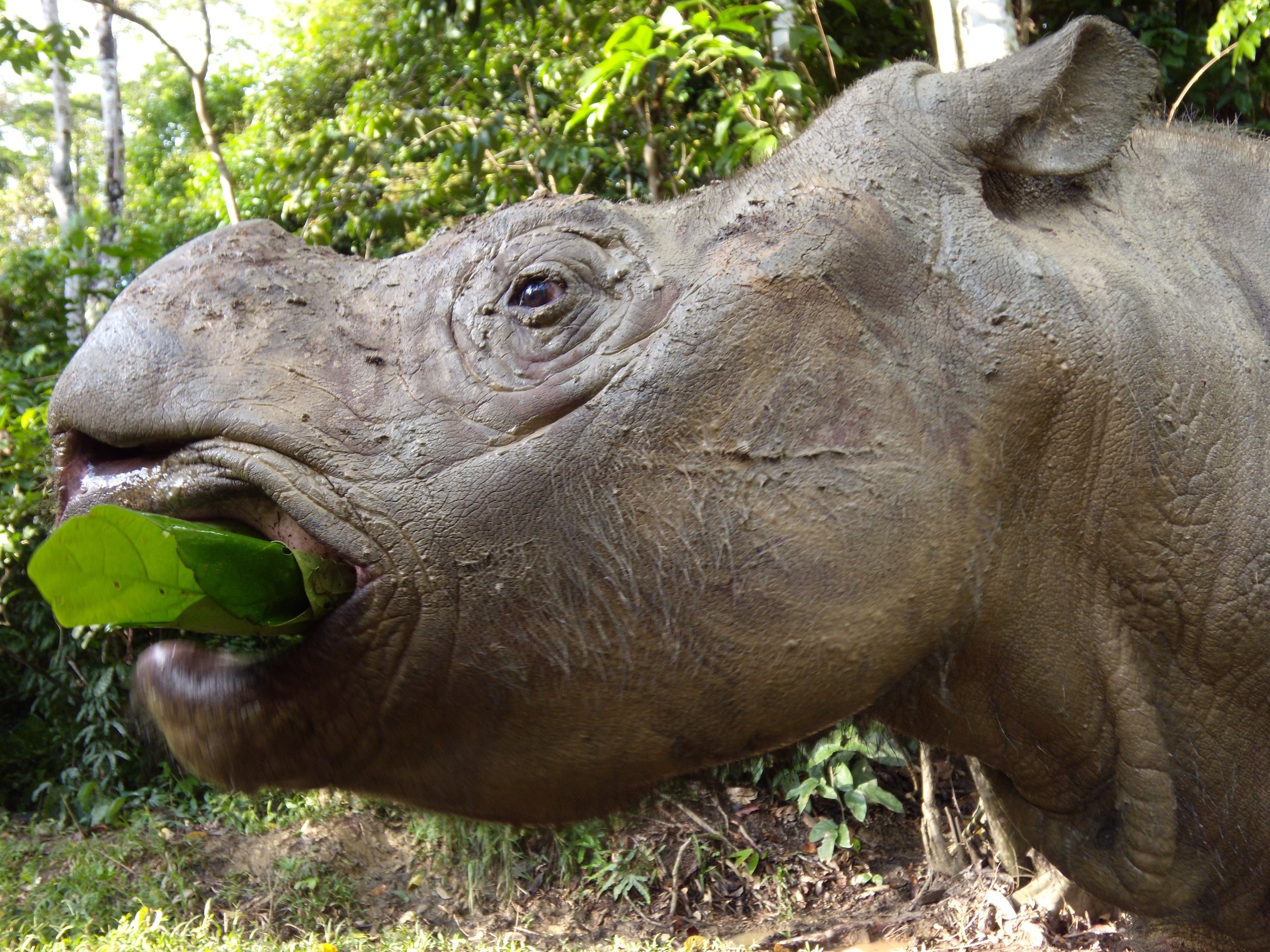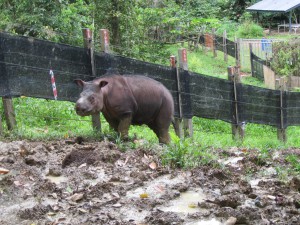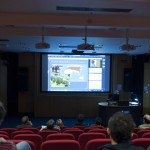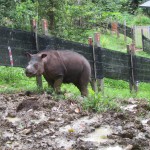
December 17, 2014, by Lindsay Brooke
Appeal to prevent the extinction of the Sumatran Rhino
A leading conservationist has made an urgent appeal to the authorities of Malaysia and Indonesia to collaborate in the conservation of the Sumatran Rhino.
In his talk streamed from the University of Nottingham’s campus in Malaysia to University Park in UK, Dr John Payne, Executive Director of the Borneo Rhino Alliance (BORA), told his audiences on either sides of the world that there are possibly only three Sumatran Rhinos left in Malaysia and fewer than 100 in Indonesia.
Dr Payne was speaking at an event hosted by Mindset – The University of Nottingham’s Interdisciplinary Centre for Environmental Studies. He said: “”Experience with many wildlife species has shown that once a species declines to just a few tens or hundreds of individuals, leaving them alone in the wild and hoping for natural recovery does not work.”
Dr Ahimsa Campus-Arceiz, from the School of Geography at The University of Nottingham Malaysia Campus (UNMC) and Director of Mindset, said: “The loss of Sumatran rhinos is a tragedy in itself and – to make things worse – the consequences will cascade down in the ecosystem, having a negative impact on many plants, animals, and ecological processes”.
Mindsethas been set up to tackle tropical environmental sustainability by building bridges between sound environmental science, innovative technology, and the ability of the social sciences to change people’s mindsets to ensure a sustainable future. The interdisciplinary centre aims to be more than a herald of bad news, it plans to set a positive tone creating and learning from success stories on tropical environmental sustainability practices. Besides research, Mindset emphasises the importance to mainstreaming environmental sustainability. In this context, every month Mindset holdas a public event with a high profile guest speaker to discuss a wide range of environmental issues, from wildlife conservation to the economics of climate changes.
Dr Payne said: “It is now time to embark on a single collaborative programme. Indonesia is now in a better position to take the lead, and I have no doubt that Malaysia would be keen to collaborate if invited. The priority is to get as many babies born as quickly as possible. With the development of in vitro techniques in recent decades, the best and probably only way is to produce embryos from egg and sperm in a laboratory.”
Dr Payne is a British permanent resident of Sabah, Malaysia. Dr John Payne is a public figure in the environmental conservation world. He helped conduct the first State-wide survey of wildlife in Sabah, 1979-81, and then was State-level head of WWF Malaysia 1982-98. He is author or co-author of 7 books, including A Field Guide to the Mammals of Borneo (1985) and Orang-utans (2008).
BORA is a non-governmental organisation dedicated to preventing the extinction of the Sumatran rhino through its Borneo Rhino Sanctuary programme. This programme, based in Tabin Wildlife Reserve in Sabah, receives its main funding from Yayasan Sime Darby (YSD), a corporate foundation.
The talk streamed by video link from the University’s teaching centre in Kuala Lumpur to the School of Geography on University Park attracted an audience of over 100 people.
- Professor Michael Steven – introducing live feed from Malaysia to UK
- Live feed from Malaysia to University Park
- Live feed from Malaysia to Univesity Park
- Fears for the future of the Sumatran Rhino
- Prof Michael Steve introduces live feed from Malaysia to University Park
- Sumatran Rhino
- Sumatran Rhino
No comments yet, fill out a comment to be the first









Leave a Reply